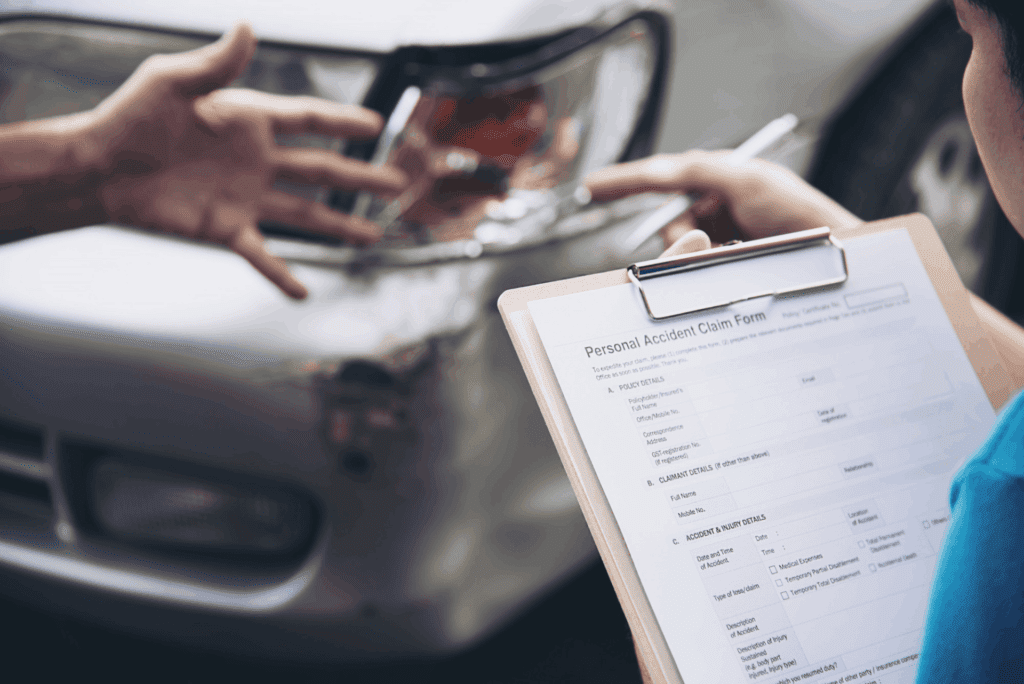Florida’s Turnpike or State Road 91 closed all morning of April 28, 2023, due to a head-on collision involving a Chevrolet Camaro and a Toyota pickup. The Camaro was driving north in the southbound lane when it hit the pickup. While the pickup truck driver sustained minor injuries, the Camaro driver suffered severe injuries. Emergency responders had to airlift him to the Ryder Trauma Center for immediate medical attention.
Unfortunately, these incidents happen too often within the area. The Florida Highway Patrol (FHP) recorded 63,507 car crashes in Miami-Dade County in 2022. The county seat, Miami, is one of the most perilous cities to drive in South Florida. Neighboring cities of Miami Gardens, North Miami Beach, Fort Lauderdale, Doral, Coral Gables, and Hialeah also showed high car crash rates.
Nobody knows when car accidents happen, so always prepare how to respond in such a situation. Your timely and appropriate reactions can save lives, especially a loved one.
In addition to immediate responses, learn the best ways to deal with the aftermath of the crash. Having a working knowledge of car
For assistance with the legal aspects of car accidents, visit The Personal Injury Center. Our online resources cater to non-legal experts and provide information on topics such as damages, driver negligence, and other legal concepts.
Key Takeaways
|
Typical Experiences After a Car Crash
The annual number of Miami car crash injuries exceeds 11,000. About 200 are considered severe injuries requiring emergency responders to fetch victims to hospitals. Similarly, the tally for fatal crash casualties is around 200.
Recovering from a car crash can be challenging. Here are possible injuries that car collision victims may sustain:
- Bone fracture, especially on the limbs, neck, and pelvic area
- Whiplash injuries
- Sprains
- Strains
- Bruises
- Deep wounds
- Scars
- Traumatic brain injury
In addition to physical injuries, patients may struggle mentally and emotionally during rehabilitation. As a result, they may develop anxiety, depression, and post-traumatic stress disorder.
Dealing With Personal Injuries After the Car Crash
Due to the overwhelming turn of events, it is common for parties to act erratically after the crash. The immediate moments following a collision are crucial, as parties may develop disabilities if they do not receive appropriate treatment. Protect your health and rights by following these steps after you find yourself in a car accident:
Inspect the drivers and passengers for injuries
Checking for injuries should be at the top of your priority list after a car collision. Look for physical signs of bleeding or severe bruising, as injured victims might need immediate medical attention. Also, ask everyone how they are feeling to alleviate any shock caused by the accident.
Keep a safe distance from the crash site
After assessing everyone’s condition, move to a safe distance from the crash site and vehicles. While the possibility of post-collision fire is around 1 percent, it can still happen. Aside from watching out for fire, parties should stay on the safe side of the road to avoid being side-swept.
Call for 911
Contacting emergency services serves two purposes: to request medical assistance and alert the Miami police department of the vehicular accident. Patiently wait until the authorities arrive and refrain from going anywhere. All involved parties should remain on the site for a faster investigation.
Take pictures of the incident
The most efficient way to document the accident is by taking photos with your camera. Take multiple close-ups and wide shots of the vehicles from different angles. It is also helpful to photograph the condition of the road, particularly any skid marks or relevant details.
Exchange contact information with all involved parties
After ensuring your health and safety, calmly and respectfully communicate with the passengers of the other cars. Get their name, home address, work address, and contact number. After, set a date to discuss settlement and other matters that require resolution.
Refrain from having roadside discussions regarding any settlement
It is not ideal to settle matters by the roadside immediately after the accident. Parties might not be mentally prepared to make rational decisions considering what they just went through. Besides, the parties may want to consult others before agreeing to a settlement.
Seek medical attention
After leaving the crash site, proceed to a hospital or clinic. Undergo a full-body checkup to ensure that you did not incur underlying injuries. It is possible for symptoms like headaches and nausea to manifest later.
Follow your doctor’s advice
Undergo all the necessary treatments prescribed by your doctor to address injuries sustained during the car crash. Failure to do so enables
What To Know About Personal Injury Claims With an Insurance Company
Before going to court, injured parties in Florida may file a claim against an
Florida is a no-fault state
No-fault states require drivers to set a minimum amount as personal injury coverage in their auto
In comparison, at-fault states require erring drivers to compensate for the personal injuries of the victims. Injured parties may claim directly with the at-fault driver’s insurer.
Twelve states in the US impose no-fault laws, including:
- Florida
- Hawaii
- Kansas
- Kentucky
- Massachusetts
- Michigan
- Minnesota
- New Jersey
- New York
- North Dakota
- Pennsylvania
- Utah
Of the twelve, Kentucky, New Jersey, and Pennsylvania are optional no-fault states. Meaning drivers in these states may choose between no-fault and traditional auto liability
Personal Injury Protection (PIP) insurance
Personal injury protection (PIP) insurance is the policy required for drivers in no-fault states. In Florida, the minimum value of PIP
- Medical treatment relating to a car crash
- Ambulance services
- Medical supplies
- Rehabilitation and future treatments
- Lost wages
- Replacement services costs, especially for house cleaning and childcare
- Funeral costs
- Survivor benefits
However, there are certain expenses PIP
- Policyholder’s car damage
- Damages on other’s property
- Injuries arising from accidents intentionally caused by others
- Injuries resulting from accidents when the covered driver is committing a crime
Filing an insurance claim
Claimants of PIP
The claim will become overdue if thirty days have passed and the
Legal consequences of agreeing to a settlement
It is standard practice for
Injured parties should not sell themselves short in exchange for a faster release of
Negotiating With an Insurance Company
Negotiating with
Tips for negotiation
Claimants can hasten and simplify the negotiation of personal injury settlements with these helpful tips:
- Before filing a claim, decide on an amount you are willing to settle
- File the
insurance claim as soon as possible - Justify your claims with official receipts, medical records, and other legitimate documents
- Ask
insurance adjusters to explain their offer - Refrain from saying yes to the first offer
- Set all agreements in writing
- Consult a personal injury lawyer
Timeline for an insurance settlement
Since a time limit of thirty days is given to
However, the settlement process may last longer if the
Filing an insurance claim vs. filing a personal injury lawsuit
Filing a PIP
When To Hire a Personal Injury Attorney


Hiring a personal injury attorney is a worthwhile investment as it relieves clients from technical and legal difficulties. Injured parties should immediately seek their services.
Here are the top reasons its crucial for parties to consult a personal injury attorney:
- They can help you avoid committing procedural mistakes from the start.
- They can help you gather time-sensitive evidence.
- They can track recoverable damages ensuring no losses go unaccounted for.
- They can coordinate with insurers on your behalf, ensuring your rights and interests are protected.
Extreme situations like hit-and-run accidents or wrong-way crashes can be devastating. Coordinating with a personal injury lawyer early on could give parties peace of mind. They can help analyze your case and find appropriate solutions.
Filing a Personal Injury Lawsuit in Miami, Florida
A personal injury lawsuit arises when someone suffers injuries due to accidents, such as a car crash. Although parties may initially resolve the claim by negotiating among themselves, they may proceed to court if they fail on a settlement amount.
Filing lawsuits can vary depending on the ruling state laws. In Florida, you must consider the following:
Elements of personal injury
The four elements of personal injury are duty, breach, causation, and damages. When filing a personal injury case resulting from a car accident, plaintiffs should establish the following:
- The legal duty of the driver to follow standards set by traffic laws
- The failure of the driver to exercise reasonable care while driving
- The driver’s negligence caused the car collision
- The car accident inflicted damages to the plaintiff and other parties involved
Claimable damages
In personal injury lawsuits, parties may claim compensatory and punitive damages.
Courts grant compensatory damages to reimburse injured parties for the damages they suffered. Compensatory damages can either be general or specific damages.
General damages cover physical disfigurement, immobility, loss of companionship, and lower quality of life. In contrast, specific damages cover hospital expenses, car repairs, rehabilitation costs, and loss of wages.
Meanwhile, punitive damages aim to deter the public from following the notorious act of an erring party. The estimation of punitive damages depends on the court or jury’s discretion.
Statute of limitations
The statute of limitations sets the timeframe within which parties must file a lawsuit. Filing beyond the set limit may invalidate a case. The rules on statute of limitations vary per state. For instance, Section 95.11 of the Florida Statutes states that injured parties in a car crash should file a personal injury case within two years.
Damage cap
Some states impose limitations on the amount of damages that can be awarded. Alaska, Colorado, Hawaii, Idaho, Kansas, Maryland, Mississippi, Ohio, Oklahoma, Oregon, and Tennessee have damage caps on general damages for product liability and medical malpractice cases. Notably, Florida has no active damage cap on damages arising from personal injury cases.
Did you know?
A wrong-way crash is when a driver counterflows and collides with vehicles moving in the correct traffic flow. This type of collision often leads to fatalities.
Preserve Your Rights With the Help of Miami Car Crash Lawyers
Miami is known for its high rate of car crashes. Given the frequent use of motor vehicles in daily life, everyone should know how to respond in the event of a car collision.
However, navigating through the complexities of dealing with
Visit The Personal Injury Center. We offer a free case evaluation. Simply complete the questionnaire, and we will connect you to a top-rated local attorney near you.
You deserve compensation for your losses in a Miami car crash. The Personal Injury Center can connect you with a trusted law firm.
FAQs on Miami Car Crashes
Is Florida a comparative negligence state?
Yes, Florida follows a comparative negligence system. In effect, at-fault parties who contributed to a car crash injuring them may only claim reduced compensatory damages.
What can I do if I exceed the limits of my PIP insurance?
Parties exceeding their PIP coverage may file compensatory damages against the erring party. If the at-fault party or their insurer does not comply, injured parties may file a personal injury lawsuit.
Should I provide a recorded statement to an insurance adjuster?
It is not advisable to provide a recorded statement to the insurance adjuster without consulting a lawyer. They may use what you said to decrease the value of the potential settlement. Besides, you are not under any obligation to do so.



